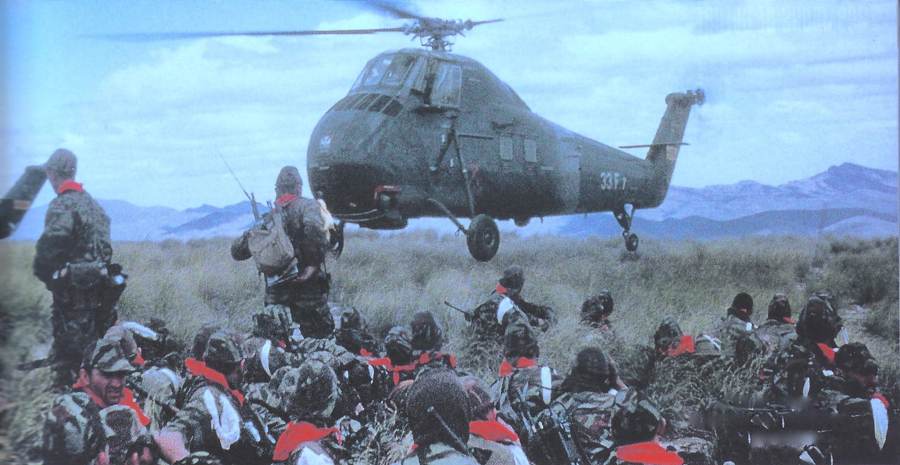War in Algeria ~ Ending French colonialism in North Africa
The Algerian War of Independence (1954–1962), brutal and long, was the most recent major turning point in the country's history. Although often fratricidal, it ultimately united Algerians and seared the value of independence and the philosophy of anticolonialism into the national consciousness. Abusive tactics of the French army remain a controversial subject in France to this day. ~ Wikipedia

It would be a conceit for me to assume that in a few thousand words and a handful of images I could explain the entirety of the Algerian War. Nevertheless, I feel compelled to make the effort, for it is a war that needs to be understood if we are to understand how the world came to be the way it is today, well into the beleaguered 21st Century.
In January 1966, I walked ashore in Quang Ngai Province, South Vietnam, across pristine white sand dunes and into a stand of small evergreen trees. My uniform, of dull olive green cotton sateen, probably provided a measure of camouflage, which I appreciated, because there was every possibility that a Viet Cong rifleman was waiting to kill me and my fellow U.S. Marines.1 We had been told that those trees had been planted by the French in an effort to stop the inland march of the sand dunes we had just marched across.

I don’t know whether, in fact, the French were responsible for planting those trees, but the story made sense. France had colonized Vietnam in the 19th Century.2
By the end of the Second World War, European colonization was coming unglued. The United Nations Charter, signed by 50 nations in 1945, confirmed the principle of equal rights and self-determination of peoples; between 1945 and 1960, three dozen new states in Asia and Africa achieved autonomy or outright independence from their European colonial rulers.
With the collusion of the British, France was able to hang onto Vietnam, but was immediately engaged by Ho Chi Minh’s Vietminh communist forces in the First Vietnam War which lasted the nine years. In 1954, the Battle of Dien Bien Phu resulted in the sound defeat of the French army and led to the Geneva Convention, which partitioned Vietnam into South and North Vietnam.
-
I wasn’t actually a marine, but a U.S. Navy hospital corpsman. I had been seconded to the U.S. Marine Corps in the summer of 1965 for service in Vietnam. It was the first day of Operation Double Eagle. ↩︎
-
French Indochina in its final incarnation was a federation of French colonies and protectorates — comprised of Cochinchina in the south, Tonkin in the north, and Annam in between, plus Laos and Cambodia. Vietnam's independence was gradually eroded by France – aided by large Catholic militias – in a series of military conquests between 1859 and 1885. By 1887, the entire country had come under French rule. ↩︎